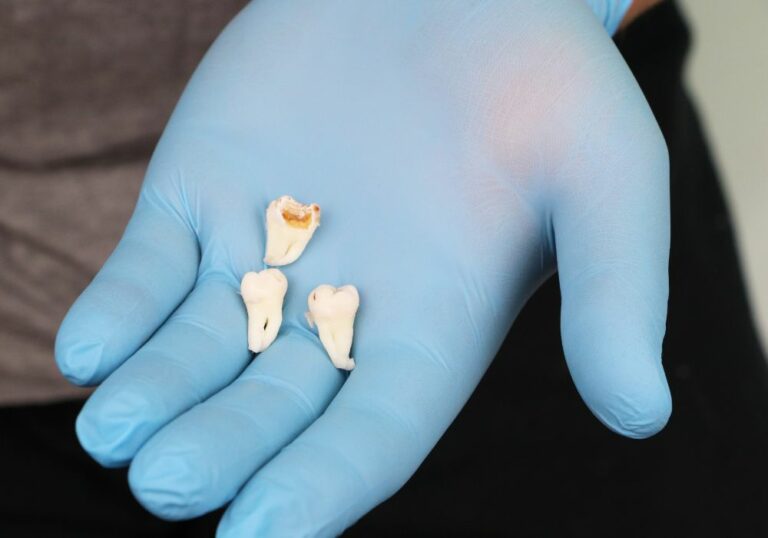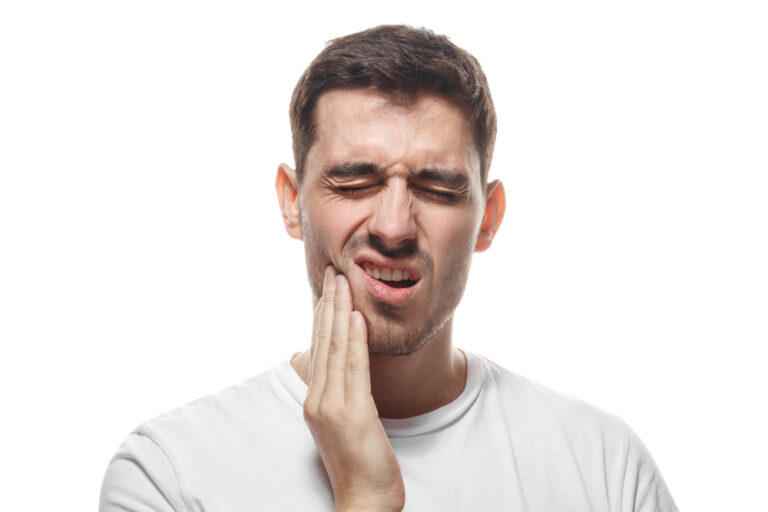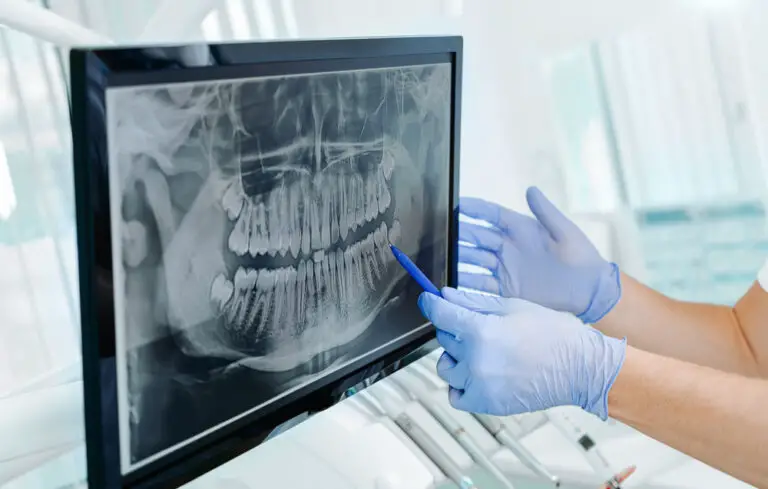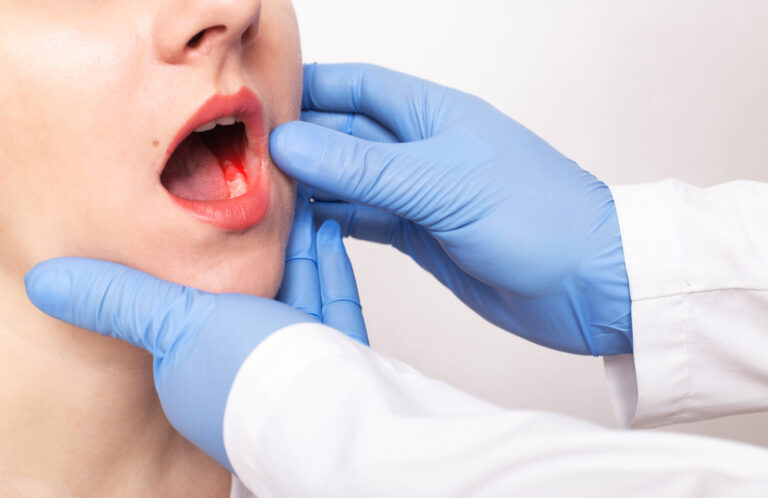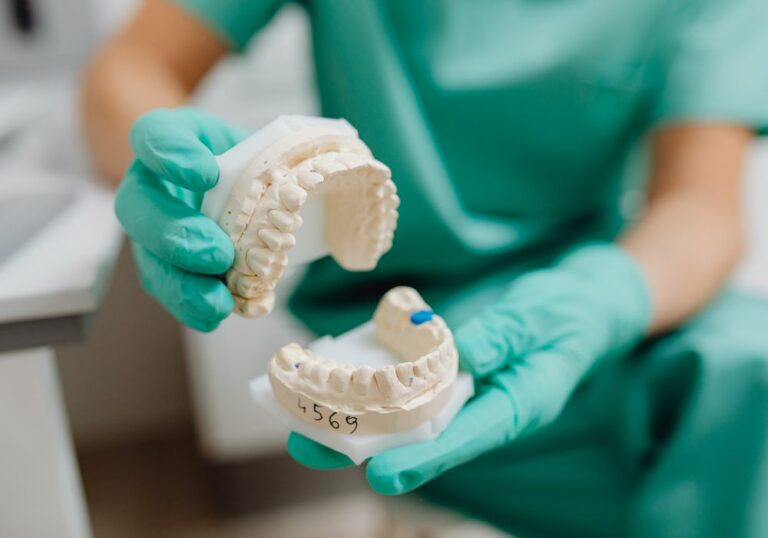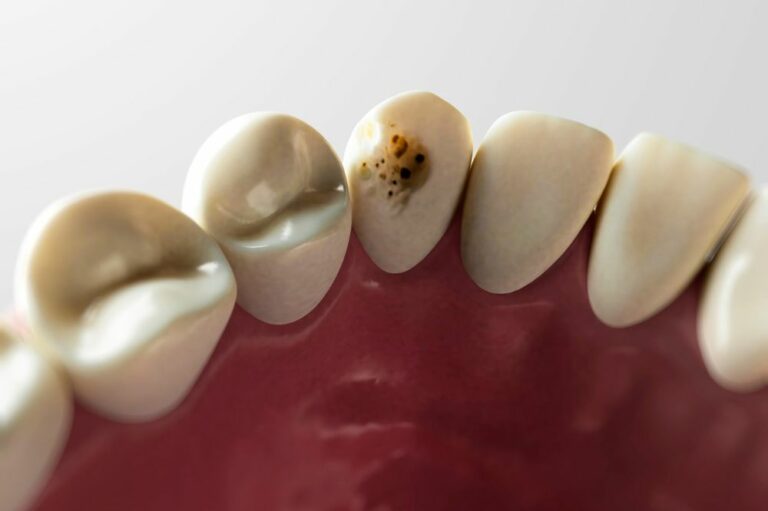When you have braces, it is essential to maintain good oral hygiene to prevent any dental issues. However, there may be times when you can’t brush your teeth, such as when you are on the go or in a situation where you don’t have access to a toothbrush. In such cases, you may wonder what you can do to keep your teeth clean and healthy.
Fortunately, there are several alternatives to brushing your teeth when you have braces. One option is to use interdental brushes to clean between the wires and brackets. You can also use floss threaders to floss between your teeth and under the wires. Additionally, there are mouthwashes and rinses that can help kill bacteria and freshen your breath.
It’s important to remember that while these alternatives are helpful, they are not a substitute for brushing your teeth. Brushing your teeth twice a day with fluoride toothpaste is still the best way to keep your teeth and braces clean and healthy. However, in situations where you can’t brush your teeth, using alternative methods can help you maintain good oral hygiene until you can brush your teeth properly.
Understanding Braces
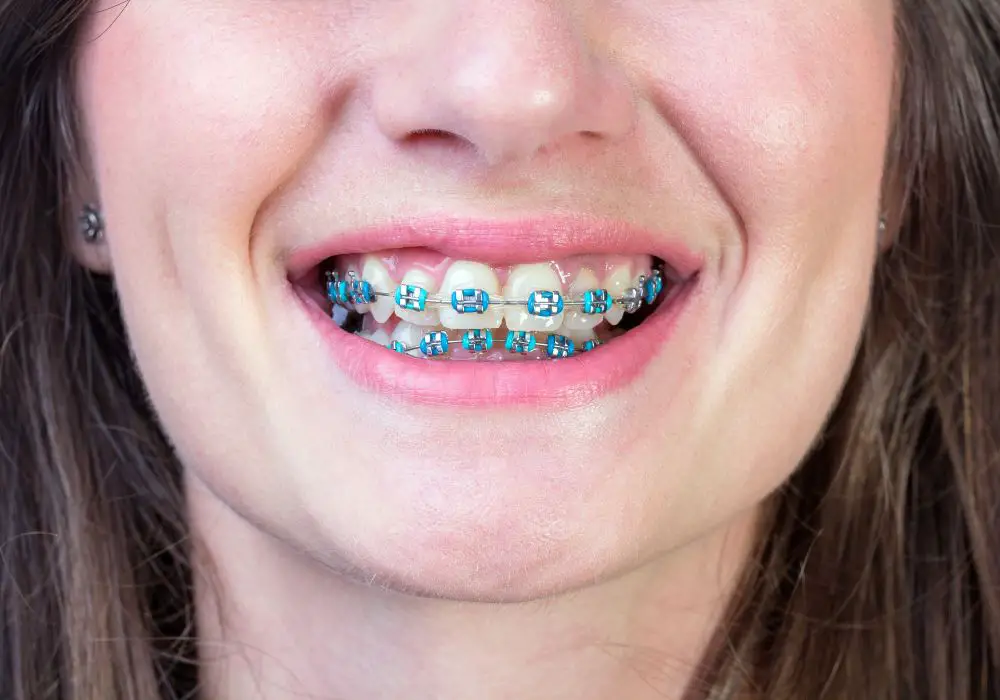
If you’re one of the millions of people who wear braces, you know how important it is to maintain good oral hygiene. Braces can make it difficult to brush and floss properly, but neglecting your teeth can lead to serious dental problems. Understanding how braces work and how to care for them can help you keep your teeth healthy and your smile bright.
How Braces Work
Braces are orthodontic appliances that are used to correct misaligned teeth and jaws. They consist of brackets, wires, and bands that are attached to the teeth and adjusted over time to gradually move the teeth into the correct position. Braces can be made of metal, ceramic, or plastic, and they come in a variety of styles and colors.
The brackets are attached to the teeth using a special adhesive, and the wires are threaded through the brackets and adjusted to apply pressure to the teeth. The bands are used to hold the wires in place and can be made of metal or elastic.
Caring for Your Braces
Proper oral hygiene is essential when you have braces. Food particles and plaque can easily get trapped in the brackets and wires, leading to tooth decay and gum disease. Here are some tips for caring for your braces:
- Brush your teeth at least twice a day with a soft-bristled toothbrush and fluoride toothpaste. Use circular motions to clean all surfaces of your teeth, including the brackets and wires.
- Floss at least once a day using a floss threader or interdental brush to clean between the teeth and under the wires.
- Rinse your mouth with water or mouthwash after meals and snacks to remove food particles and bacteria.
- Avoid hard, sticky, and sugary foods that can damage your braces and increase your risk of tooth decay.
- Wear a mouthguard when playing sports to protect your braces and teeth from injury.
- Visit your orthodontist regularly for adjustments and checkups.
By following these tips, you can keep your braces and teeth clean and healthy. If you have any questions or concerns about your braces, be sure to talk to your orthodontist.
Why Regular Brushing is Challenging with Braces
When you have braces, it’s essential to maintain good oral hygiene to prevent tooth decay, gum disease, and other dental problems. However, it can be challenging to brush your teeth effectively with braces. Here are a few reasons why regular brushing is challenging with braces:
Braces Create Hard-to-Reach Areas
Braces consist of brackets, wires, and rubber bands that create hard-to-reach areas in your mouth. The brackets and wires can trap food particles and make it difficult to remove plaque and bacteria. If you don’t brush your teeth thoroughly, you may develop cavities, bad breath, and other oral health issues.
Braces Require Extra Time and Effort
Brushing your teeth with braces requires more time and effort than brushing without braces. You need to brush each tooth individually and pay extra attention to the areas around the brackets and wires. You may also need to use additional tools like interdental brushes, floss threaders, or water flossers to clean between your teeth and braces.
Braces Can Cause Discomfort
Braces can cause discomfort and sensitivity, especially during the first few weeks of treatment. If your teeth and gums are sore, you may be hesitant to brush your teeth thoroughly. However, skipping brushing can make your discomfort worse and increase your risk of developing dental problems.
Braces Can Damage Your Brush
Braces can also damage your toothbrush if you’re not careful. The brackets and wires can fray the bristles and make your toothbrush less effective. It’s important to replace your toothbrush regularly and use a soft-bristled brush that’s gentle on your teeth and braces.
Overall, regular brushing is essential when you have braces, but it can be challenging. However, with the right tools and techniques, you can maintain good oral hygiene and keep your teeth healthy throughout your orthodontic treatment.
Alternative Solutions to Brushing with Braces
When you have braces, it can be challenging to keep your teeth clean and healthy. Brushing your teeth twice a day is crucial, but sometimes you may find yourself in a situation where you can’t brush your teeth. Here are some alternative solutions to brushing your teeth with braces.
Water Flossers
Water flossers are an excellent alternative to traditional flossing. They use a stream of water to clean between your teeth and braces, removing any food particles or debris. Water flossers are easy to use and can be used anywhere, making them a convenient solution when you can’t brush your teeth.
Interdental Brushes
Interdental brushes are small brushes that are specially designed to clean between your teeth and braces. They come in various sizes, so you can find the perfect one to fit between your braces. Interdental brushes are easy to use and can be used anywhere, making them a convenient solution when you can’t brush your teeth.
Orthodontic Toothbrushes
Orthodontic toothbrushes are specially designed to clean around braces and wires. They have V-shaped bristles that fit around the brackets and wires, making it easier to clean your teeth thoroughly. Orthodontic toothbrushes are easy to use and can be used anywhere, making them a convenient solution when you can’t brush your teeth.
Remember, these alternative solutions are not a replacement for brushing your teeth twice a day. They are only meant to be used when you can’t brush your teeth. It’s essential to keep your teeth clean and healthy while you have braces to avoid any complications or delays in your treatment.
In summary, water flossers, interdental brushes, and orthodontic toothbrushes are excellent alternative solutions to brushing your teeth with braces. They are easy to use and can be used anywhere, making them a convenient solution when you can’t brush your teeth.
Importance of Oral Hygiene with Braces
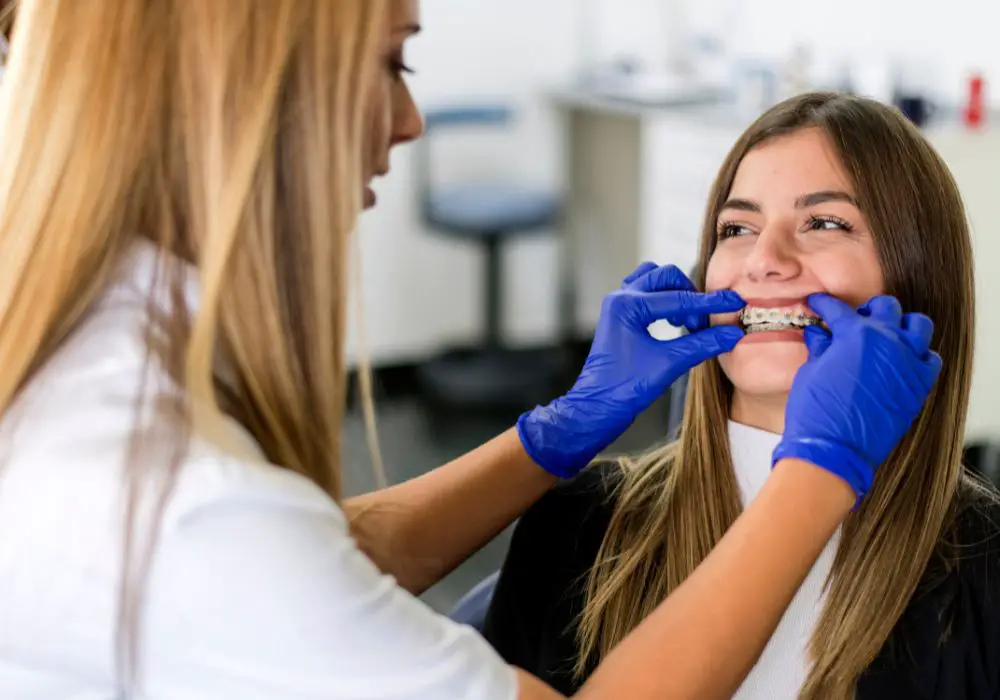
Maintaining good oral hygiene is always important, but it becomes even more crucial when you have braces. Braces can make it difficult to clean your teeth properly, which can lead to problems like bad breath, tooth decay, and gum disease. Here are some reasons why oral hygiene is so important when you have braces:
Prevents Plaque Buildup
When you have braces, it’s easy for food particles to get stuck in the brackets and wires. If you don’t brush and floss regularly, these particles can turn into plaque, which can cause cavities and gum disease. Plaque buildup can also make it harder to remove your braces when your treatment is complete.
Keeps Your Gums Healthy
Braces can irritate your gums, especially if you’re not cleaning your teeth properly. This can lead to gum disease, which can cause your gums to bleed, swell, and recede. Keeping your teeth and gums clean can help prevent these problems.
Helps You Avoid Bad Breath
When food particles get stuck in your braces, they can start to smell bad as they break down. This can cause bad breath, which can be embarrassing and unpleasant. Regular brushing and flossing can help keep your breath fresh and clean.
Improves Your Overall Health
Poor oral hygiene can lead to a range of health problems, including heart disease, diabetes, and respiratory infections. By taking care of your teeth and gums, you can help prevent these issues and maintain your overall health.
In summary, maintaining good oral hygiene is essential when you have braces. By brushing and flossing regularly and using tools like interdental brushes, you can keep your teeth and gums healthy and avoid problems like bad breath and tooth decay.
Professional Dental Cleaning
Regular professional dental cleanings are essential for maintaining good oral hygiene, especially when you have braces. A dental cleaning usually involves removing plaque and tartar buildup from your teeth and gum line. Here’s what you can expect during a professional dental cleaning:
- Physical exam: Before the cleaning process begins, the dental hygienist will examine your mouth to check for any signs of gum disease or other oral health issues.
- Scaling: The hygienist will use special tools to remove plaque and tartar buildup from your teeth and gum line. This process may take some time, especially if you have a lot of buildup.
- Polishing: Once the scaling is complete, the hygienist will polish your teeth to remove any remaining stains or plaque. This will leave your teeth feeling smooth and clean.
- Flossing: The hygienist will floss your teeth to remove any remaining debris and ensure that your gums are healthy.
- Fluoride treatment: Finally, the hygienist may apply a fluoride treatment to your teeth to help strengthen the enamel and prevent cavities.
It’s important to note that professional dental cleanings are not a substitute for regular brushing and flossing. You should still brush your teeth twice a day and floss daily, even when you have braces. However, regular dental cleanings can help ensure that your teeth and gums stay healthy while you’re undergoing orthodontic treatment.
Preventing Oral Health Issues
Maintaining good oral hygiene is crucial when you have braces to avoid oral health problems. Here are some tips to prevent issues:
- Brush your teeth twice a day for at least two minutes using fluoride toothpaste. Make sure to brush all surfaces of your teeth, including the brackets and wires of your braces. Use a soft-bristled toothbrush to avoid damaging the wires and brackets.
- Floss daily using a floss threader to get between the wires and under the brackets. This will help remove food particles and plaque that can lead to tooth decay and gum disease.
- Use an interdental brush to clean hard-to-reach areas between your teeth and braces.
- Rinse your mouth with an antiseptic mouthwash to kill bacteria and freshen your breath.
- Avoid sugary and starchy foods that can stick to your braces and teeth, promoting tooth decay and gum disease.
- Drink plenty of water to keep your mouth hydrated and help flush out food particles and bacteria.
- Visit your orthodontist regularly for check-ups and adjustments to ensure your braces are properly aligned and functioning.
By following these tips, you can prevent oral health issues and maintain good oral hygiene while wearing braces.
Maintaining a Braces-Friendly Diet
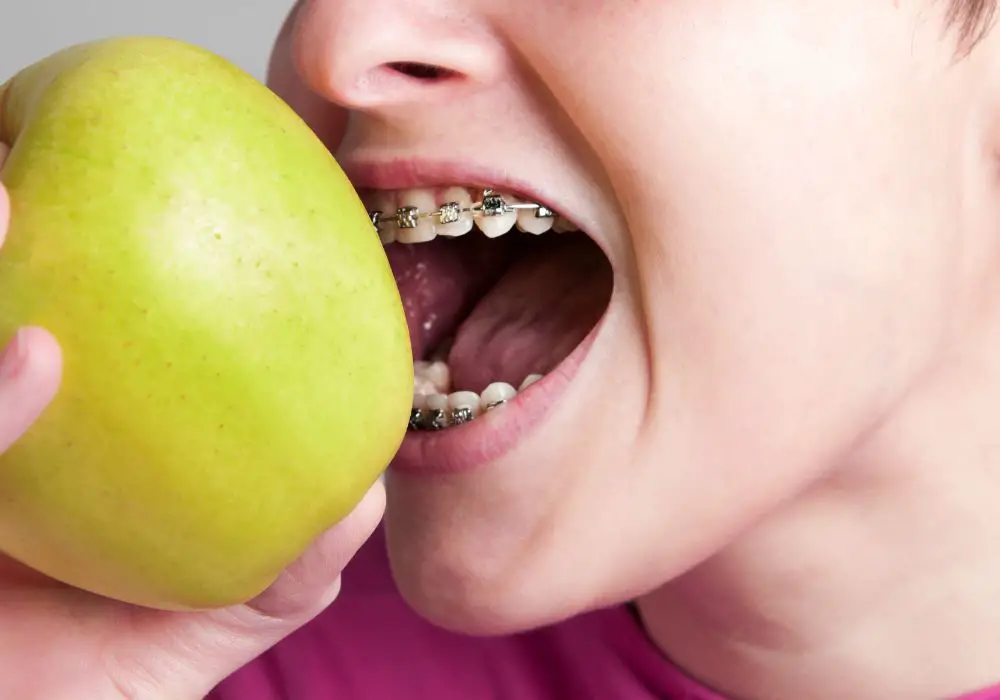
When you have braces, it’s important to maintain a braces-friendly diet to prevent damage to your braces and ensure that your teeth and gums stay healthy. Here are some tips for maintaining a braces-friendly diet:
Foods to Avoid
There are certain foods that you should avoid when you have braces, as they can damage your braces or get stuck in between your teeth and braces. These include:
- Hard, crunchy foods like popcorn, nuts, and hard candy
- Sticky and chewy foods like caramel, taffy, and gum
- Tough meats like steak and jerky
- Corn on the cob and apples (unless cut into small pieces)
- Foods that require biting into with your front teeth, like corn chips and bagels
Foods to Eat
While there are some foods you should avoid, there are plenty of foods that are safe and healthy to eat with braces. Here are some examples:
- Soft fruits like bananas, berries, and peaches
- Cooked vegetables like carrots, squash, and green beans
- Dairy products like yogurt, cheese, and milk
- Soft grains like pasta, rice, and oatmeal
- Soft proteins like eggs, fish, and tofu
Tips for Eating with Braces
In addition to knowing what foods to avoid and what foods to eat, there are some tips you can follow to make eating with braces easier and more comfortable:
- Cut your food into small pieces to make it easier to chew
- Chew with your back teeth instead of your front teeth
- Take small bites and chew slowly
- Rinse your mouth with water after eating to remove any food particles that may be stuck in your braces
- Brush and floss your teeth regularly to prevent food buildup and plaque
By following these tips and maintaining a braces-friendly diet, you can ensure that your braces stay in good condition and your teeth and gums stay healthy throughout your orthodontic treatment.
When to Seek Professional Help
While maintaining good oral hygiene is crucial when you have braces, there may be times when you need to seek professional help. Here are some situations where you should consider reaching out to your orthodontist:
- Pain or discomfort: If you experience pain or discomfort in your teeth or gums that does not go away after a few days, it’s best to consult your orthodontist. They can examine your braces and teeth to determine the cause of the pain and provide appropriate treatment.
- Broken or loose brackets or wires: If you notice that a bracket or wire is loose or broken, contact your orthodontist immediately. They can advise you on what to do and schedule an appointment to fix the issue.
- Swollen or bleeding gums: If your gums are swollen, red, or bleed when you brush or floss, it could be a sign of gum disease. Your orthodontist can evaluate your gums and recommend appropriate treatment.
- Persistent bad breath: While bad breath is common, it can be a sign of a more serious problem, such as gum disease or tooth decay. If you have persistent bad breath, even after brushing and flossing, it’s best to consult your orthodontist.
Remember, it’s always better to be safe than sorry when it comes to your oral health. If you have any concerns or questions about your braces, don’t hesitate to reach out to your orthodontist for help.
Frequently Asked Questions
Can I use an interdental brush to clean my teeth with braces?
Yes, interdental brushes are a great tool for cleaning your teeth with braces. They can help you get into the hard-to-reach areas behind the wires and brackets. Just make sure to use them gently to avoid damaging your braces.
What are some alternative ways to clean my teeth when I can’t brush with braces?
If you can’t brush your teeth with braces, there are still some alternative ways to keep your teeth clean. You can use mouthwash to rinse your mouth, chew sugar-free gum to stimulate saliva production, or use a water flosser to clean between your teeth and around your braces.
Is it okay to skip brushing my teeth one night with braces?
No, it is not okay to skip brushing your teeth with braces. It is important to maintain good oral hygiene to prevent tooth decay and gum disease. If you can’t brush your teeth for some reason, try using one of the alternative cleaning methods mentioned above.
What foods should I avoid if I have braces?
It is best to avoid hard, sticky, and chewy foods if you have braces. These types of foods can damage your braces and make it harder to clean your teeth. Some examples of foods to avoid include popcorn, caramel, and hard candy.
Can I use mouthwash instead of brushing my teeth with braces?
No, mouthwash is not a substitute for brushing your teeth with braces. While mouthwash can help kill bacteria and freshen your breath, it cannot remove plaque and food particles from your teeth and braces. It is important to brush your teeth at least twice a day with fluoride toothpaste.
How often should I brush my teeth with braces?
You should brush your teeth with braces at least twice a day for two minutes each time. It is also important to floss your teeth at least once a day to remove plaque and food particles from between your teeth and around your braces.

